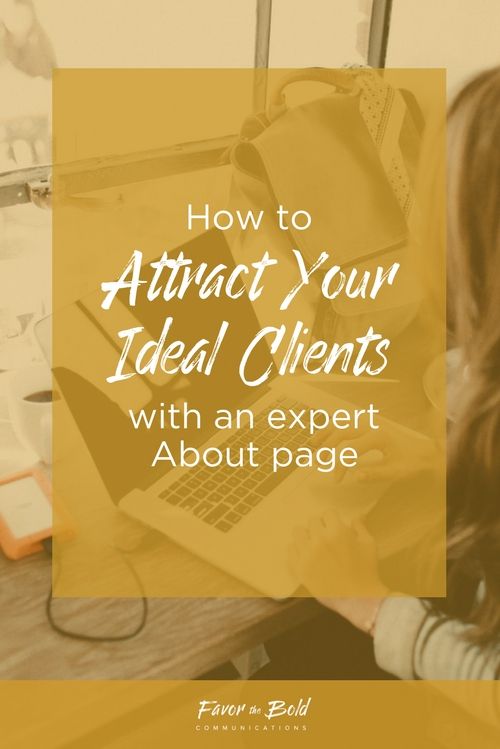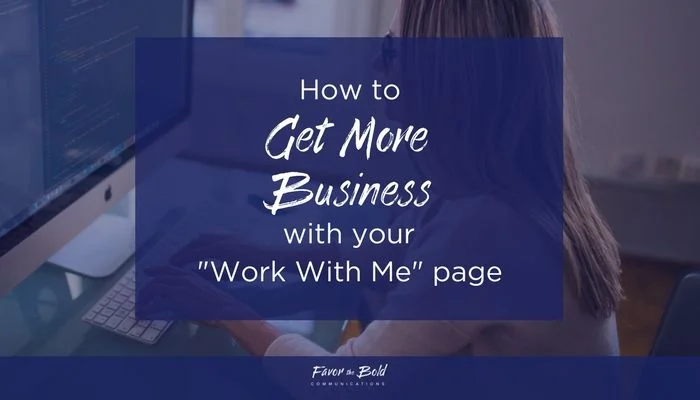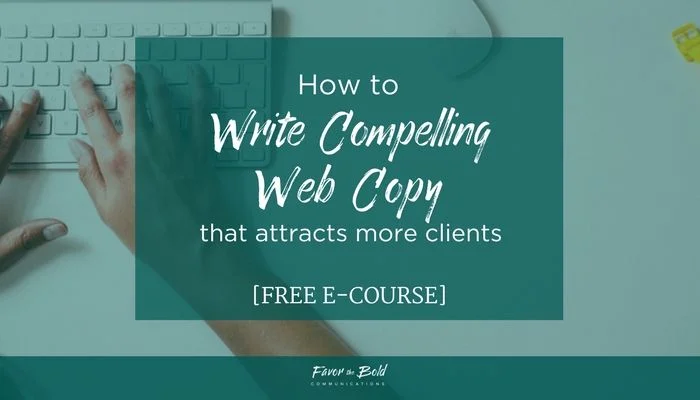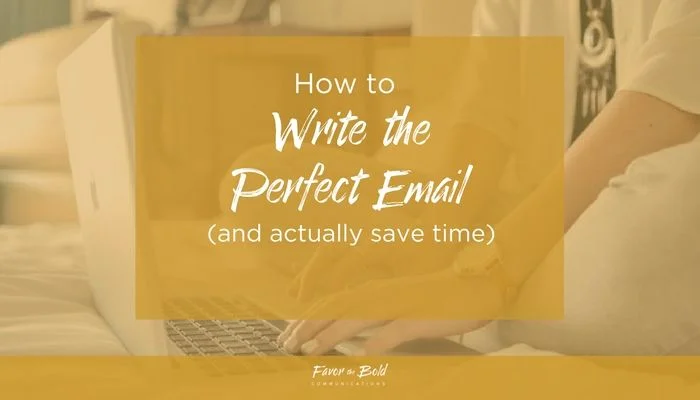It’s funny how people freak out when they have to write an About page. You see these brilliant, confident entrepreneurs who can sell the crap out of what they do-- but when it comes to talking about themselves, they freeze.
And if you think about it, it doesn’t make any damn sense: of everything you have to cover on your business website, you’d think the page about you would be the easiest. After all, you know the subject matter, don’t you?
So why is writing an About page so difficult? And how do you write one that doesn’t feel super awkward?
Read on to learn how to write an About page that attracts your ideal clients and positions you as the expert you are.
1. Start with your audience, not you
Most people think their About page is there to answer the question, “Who?” as in, “Who are you?”
But that’s not the case.
People don’t visit an About page to find out “Who,” they visit an About page to find out “Why”-- as in: “Why should they care about you?”
So if you want them to care about you enough to read more, you need to hook them in right away by showing them how they fit into your story, before you tell it.
Now, if you’re looking at your screen like, “Eh?”, what I mean is starting with something your audience relates to, rather than jumping right into talking about yourself. For example:
- Your audience’s problem: Stating why they’re here and what they’re looking for can go a long way in showing them you understand and care about them.
- A personal story that your audience can relate to: If you’ve been in the same situation as your ideal client and were able to make the same transformation they’re seeking, feel free to tell that story on your About page.
- A bold statement: Starting with a bold statement that shows your vision of the world and the difference you want to make can give your target audience something to agree with. It can immediately make them say, “Yes! Me too!”, which shows them they’re in the right place.
Remember, your audience is reading your About page asking themselves, “What’s in it for me?” so be sure your hook answers that within the first couple sentences.
Because unless you help them understand the Why, they’ll never really care about the Who.
2. Introduce the problem
Your hook may have already done this, but if not, make sure you state the problem you solve for your audience. Now, I’m not saying you should be a total Debbie Downer and drag them into the depths of despair.
But spending a little time acknowledging what your audience is going through goes a long way to create that coveted Know, Like, Trust factor.
Here’s how:
First, it helps them know they’re in the right place. They’re reassured right away that you might be the solution to their problem, and that they’re not wasting their time on your website.
Second, it shows them that you want to help them, which in turn makes them like you. When you touch on their personal pain point, they feel seen and understood-- and the beginning of a relationship is born.
And third, it helps them trust that you not only understand their problem, but you also know the solution. The better you understand their situation, the more you look like you know what you’re talking about
Which leads us to the next step.
3. Introduce yourself as the solution
Once you’ve shown them you know what they’re going through, now’s the time to reassure them that you can help.
This isn’t the time to be humble. If they’re still reading, it means they relate to the problem you introduced and want a solution.
If you can solve their problem, do them a favor and let them know.
Now remember, this is your About page, not your Work With Me page, so this isn’t the place to go into all of the details about how you can help them. A simple sentence or two that introduces what you do, who you help and what end result they’ll get is enough here.
4. Share experience that shows you’re an expert
So you’ve hooked them in, shown them you understand their problem and that they’re in the right place, and introduced yourself as a potential solution to their problem.
Now’s the time to build their trust by showing them you know what you’re talking about: your professional experience, your background, your “story.”
You know, the stuff most people start with (and those people should really read this blog…).
By getting a glimpse of your background, they see that you’ve actually done what you claim to be able to do. They’re reassured that you’ve done this before. They understand that you’re an expert with the professional and life experience to able to walk the walk.
Now, it should go without saying (but I’m going to say it anyway because this is important):
Your About Page is not your CV-- please don’t include your entire life story or step-by-step career trajectory.
Yes, give them a brief overview of your credentials and and key accomplishments. But no, don’t overwhelm them with paragraph after paragraph of every job you’ve ever had and that one time you got a second place medal in a high school debate competition.
We all love you dearly, but seriously, no one cares.
Because remember: it isn’t about you, it’s about them. So for everything you write, ask yourself:
What’s in it for them?
Does this show them I can solve their problem?
Why should they care?
5. Show your personality
Remember that whole Know, Like, Trust thing?
Don’t underestimate the power of being liked.
Buying is an emotional decision and we buy from people and companies we like. Giving your ideal clients something to relate to and care about isn’t just an ego builder-- it’s good for business.
Remember, there are likely hundreds of other people who do what you do and have your credentials. What makes you stand out from your competition is who you are and what you stand for.
When your audience sees their own humor, values and philosophy in your brand, they’ll be much more likely to choose you over the competition.
And yes, even for B2B businesses.
Because as much as you’re the human behind your business, there’s a human behind each of your website’s visitors. For every page view, there’s a person who is looking for something: someone to solve their problem, someone who understands what they’re going through, someone who can help them.
Showing who you are in an authentic way not only makes you more likable-- it also makes you more trustworthy.
It helps you build a human connection with those who truly need your help. And your About page is the perfect place to do it.
Your audience is there to answer one question, and one question only: Are you for them?
And the only way to answer that is to show them who you are.











![How to boost your brand offline-- and get more business [Part 3]](https://images.squarespace-cdn.com/content/v1/5671d7a82399a31f114f4c55/1477565172008-2K7456WNHWYM99T12HTV/How+to+boost+your+brand+offline--+and+get+more+business.jpg)